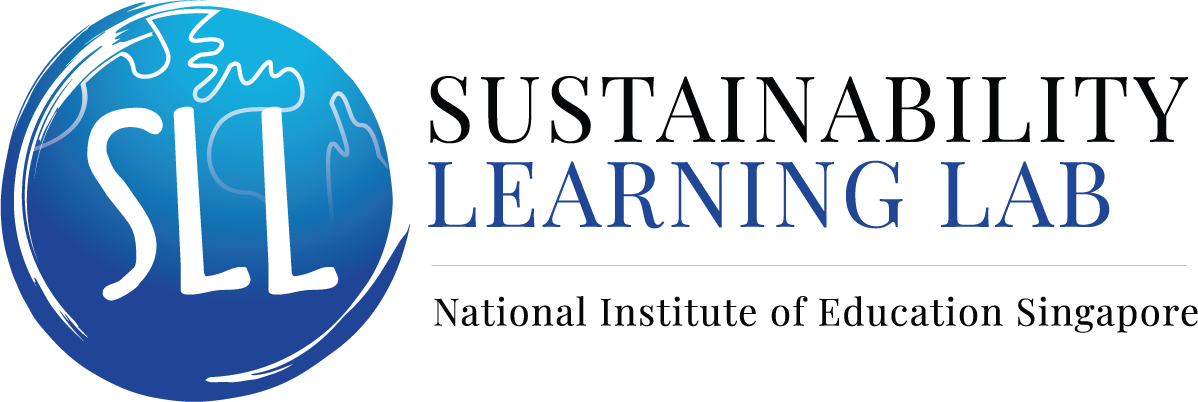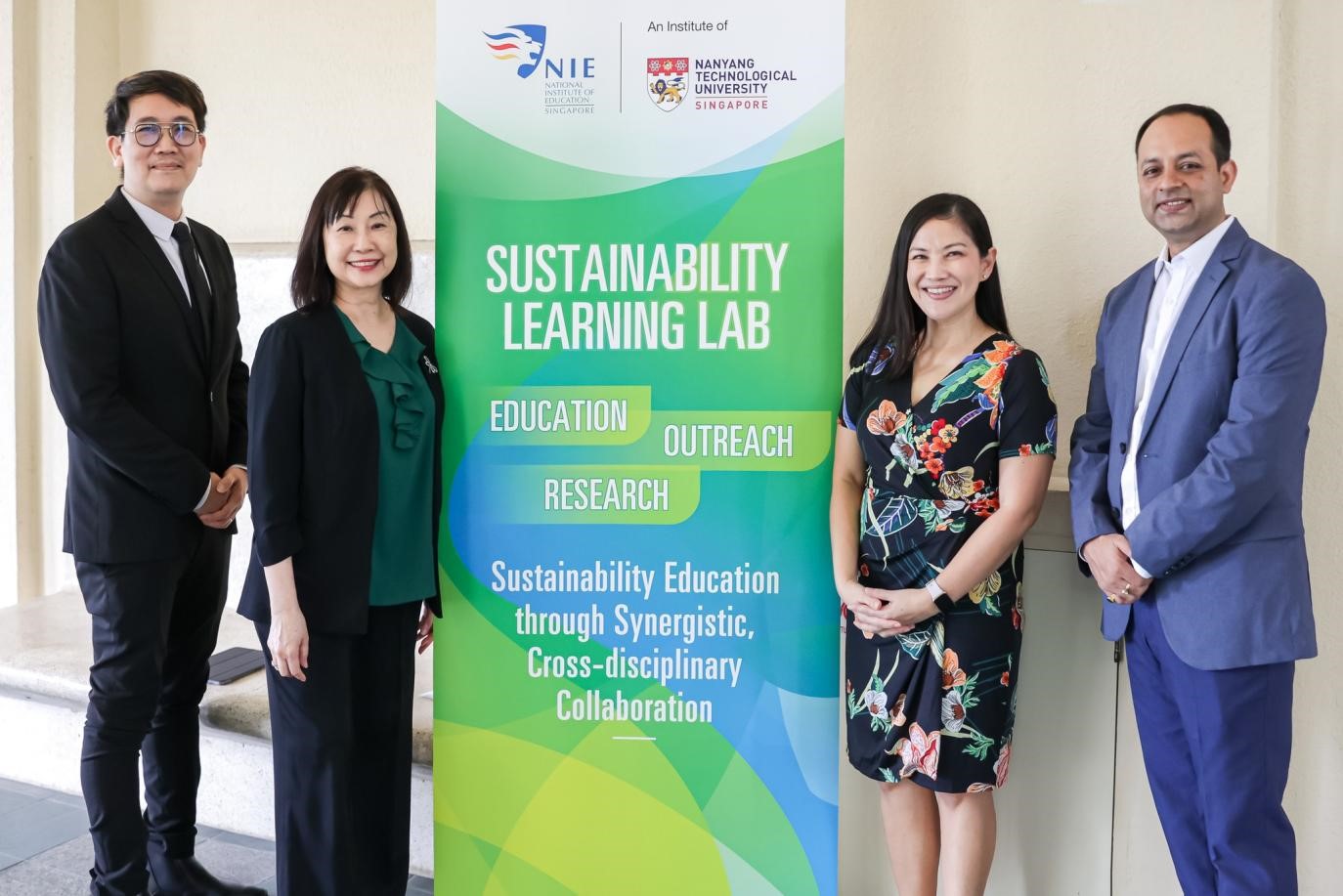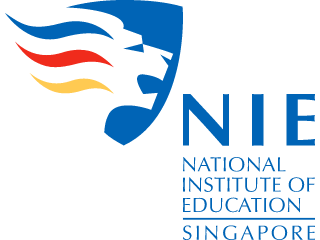Sustainability Learning Lab’s launch on the 26th September 2022
National Institute of Education (NIE) launched a new research centre called The Sustainability Learning Lab (SLL) on the 26th of September 2022. SLL has been set up to conduct and support studies on and practices in sustainability education, including outreach efforts. The in person comprised of a formal session at lecture theatre 11 in the morning — followed by an open house of the newly renovated SLL room and the Environmental Studies Lab, alongside a field-based tour to the rain garden in the afternoon. The formal session was graced by NIE Director Professor Christine Goh and approximately 70 guests from partner institutions and stakeholders from related industries. In particular, SLL has caught the attention of organisations such as the Ministry of Education’s Curriculum Planning and Development Division, Ministry of Sustainability and the Environment, Nanyang Business School, Singapore Science Centre, and the Public Utilities Board, among others.
The genesis of SLL can be traced to Professor Chang Chew Hung, Dean of Academic and Strategic Development (see Fig. 1), who seeded this idea more than a year ago. Since then, the lab has been set up with three key objectives in mind. First, SLL is committed to generating new knowledge on sustainability and sustainability education research. Second, it aims to translate the outputs of sustainability education research into curricular resources and signature pedagogical tools for educators. Finally, it strives to further the environmentalist values while nurturing sustainable communities of learning.
The formal launch began with an opening speech by Professor Christine Goh, as well as a welcome address from co-chairs Dr. Tricia Seow and Associate Professor Diganta Das. This was accompanied by an inspiring keynote presentation by Professor Shane Snyder, Executive Director of Nanyang Environment and Water Research Institute (NEWRI) at Nanyang Technological University (NTU) as well as a panel discussion on ‘learning about sustainability: What a society must do’. The panellists were Ms. Foo Peng Er, Vice President of Group Sustainability from CapitaLand Investment, Dr. Ho Shen Yong, Executive Director of the Institute of Pedagogical Innovation Research and Excellence (InsPIRE) at NTU, Dr. Tricia Seow and Professor Shane Snyder.
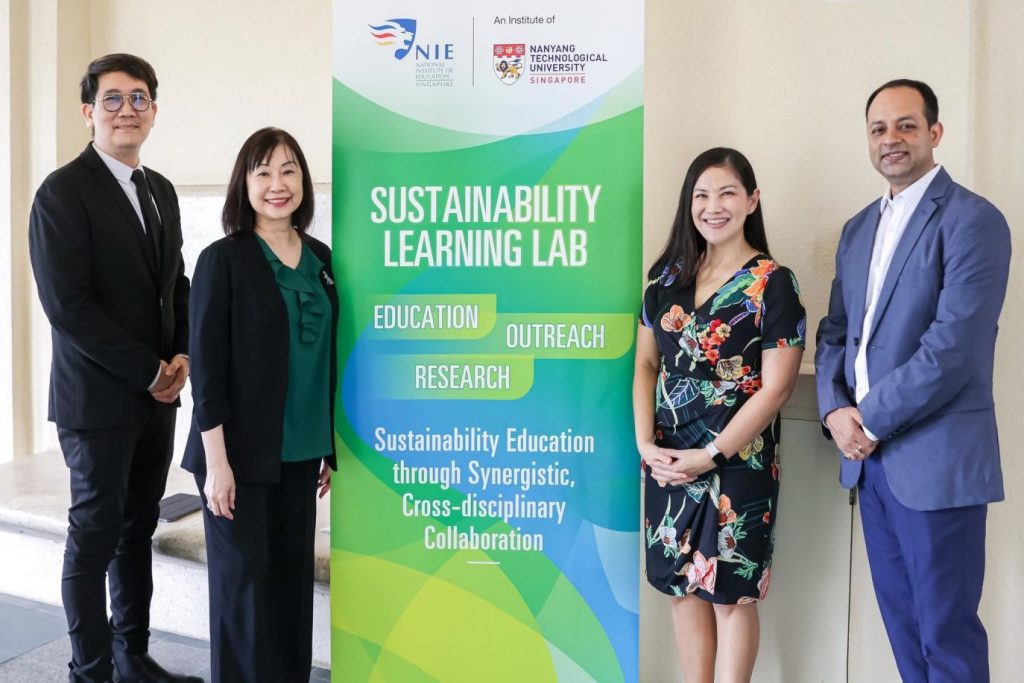
Fig. 1: (From left) Professor Chang Chew Hung (Dean, Academic and Strategic Development, NIE) and Professor Christine Goh (NIE Director) with Dr. Tricia Seow and Associate Professor Diganta Das, who are both co-chairs of the Sustainability Learning Lab at the launch.
Formal launch at Lecture Theatre 11
Professor Christine Goh kick-started the event by highlighting the multiple ways in which the launch of SLL is a timely one (Fig. 2A and 2B). She noted that SLL’s focus on sustainability-related issues, including sustainable development, is well aligned to NTU’s wider emphasis on sustainability and resilience, especially with respect to its Social Science and Humanities Research Plan 2025. She was pleased to add that SLL has the potential to contribute to NIE’s Strategic Growth Areas, and that it is already well plugged into the Emerging Technologies Strategic Growth Workstream. Moreover, she stated that such an emphasis on (environmental) sustainability has been consonant with current initiatives rolled out on a larger national scale, such as the Green Plan 2030 and the Ministry of Education’s Eco-stewardship Programme, to develop an engaged citizenry that cares for the (future) world.
The co-chairs Dr. Tricia Seow and Associate Professor Diganta Das went on to assert in their welcome address that SLL’s strength lies in the synergistic, cross-disciplinary collaboration among sustainability researchers who are content experts in their fields, and education researchers who are capable of translating this content into curricula and/or pedagogies for sustainability education (Fig 3A and 3B).
The SLL team was honoured to have Professor Shane Snyder as a keynote speaker (Fig 4). He introduced the salience of NEWRI’s work by referencing the state’s long standing focus on water security and how technological advancements at NEWRI address national priorities around resource constraints, especially with respect to ensuring water quality/quantity. Besides alleviating the problems associated resource scarcity, Professor Synder remarked that some of these cutting edge research projects also produce raw materials as outputs, thereby contributing to a circular urban metabolism.
The last segment of the formal launch involves a panel discussion organised around what different stakeholders in society can do to heighten environmentalist consciousness and cultivate sustainable practices among the populace (Fig 5A and 5B). Ms. Foo Peng Er revealed that CapitaLand has long taken the issue of sustainability seriously and has frequently deployed novel technologies to green its facilities. Additionally, Dr. Ho Shen Yong made a case for the role of pedagogy in supporting environmental education while Dr. Tricia Seow stressed that eco-pedagogies should not neglect the broader power geometries that issues on sustainability are embedded in. Rather, she opined that student-teachers who wish to be change-makers will need to be sensitive to how power operates contextually.
The Question and Answer session thereafter reaped reflexive comments on how corporations like CapitaLand are making significant strides towards eco(logical) urbanism (i.e. cities mimicking natural ecosystems). A question on what can be done to not just inculcate environmentalist values but to also incite environmentalist action was also raised. Dr. Ho Sheng Yong responded by sharing a personal anecdote of how his daughter decided to turn vegan after watching a video on animal cruelty. He indicated that educational research is precisely instructive for this reason, to hypothesise what would trigger a paradigm shift among individuals. The first half of the launch ended with NIE Director Professor Christine Goh presenting sustainably sourced and packaged tokens of appreciation to the panellists (Fig 6).
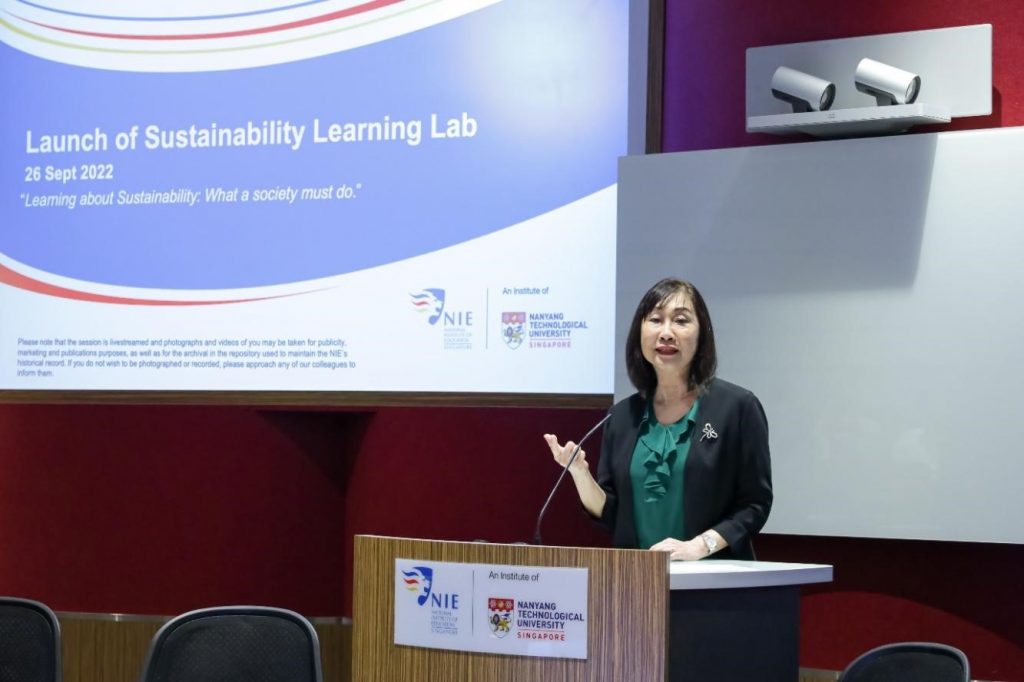
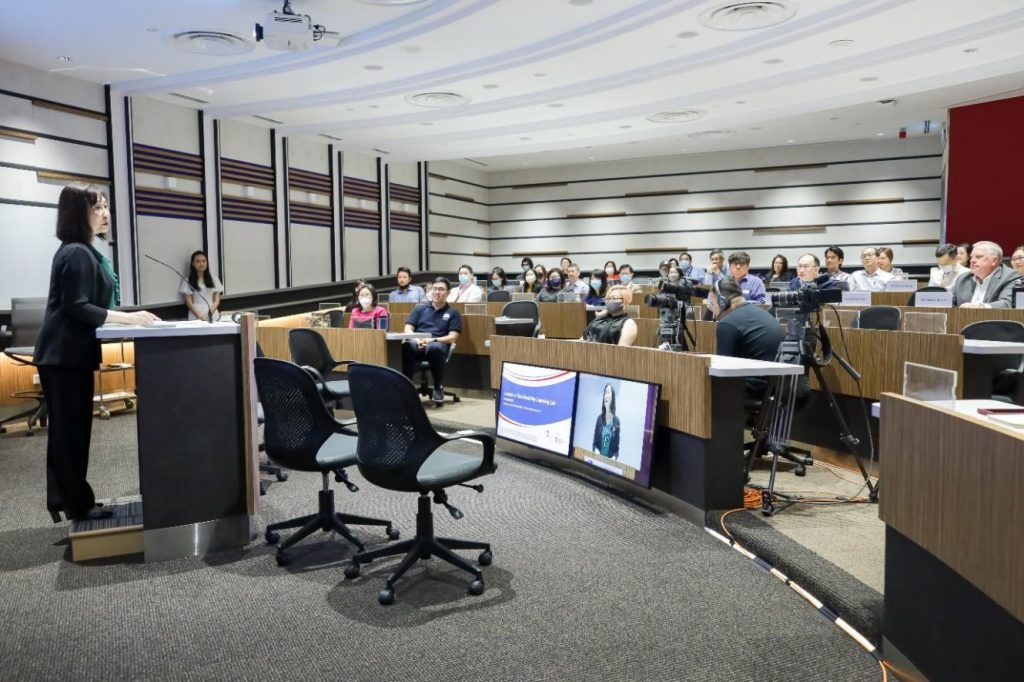
Fig. 2A and 2B: NIE Director Professor Christine Goh giving an opening speech and formally launching the SLL.
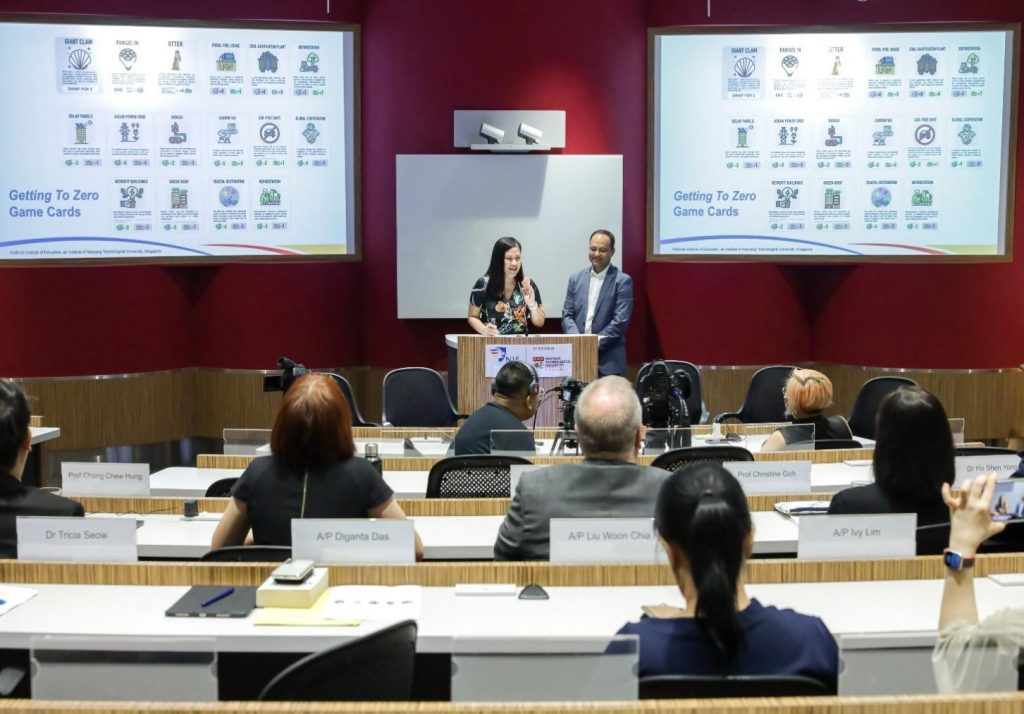
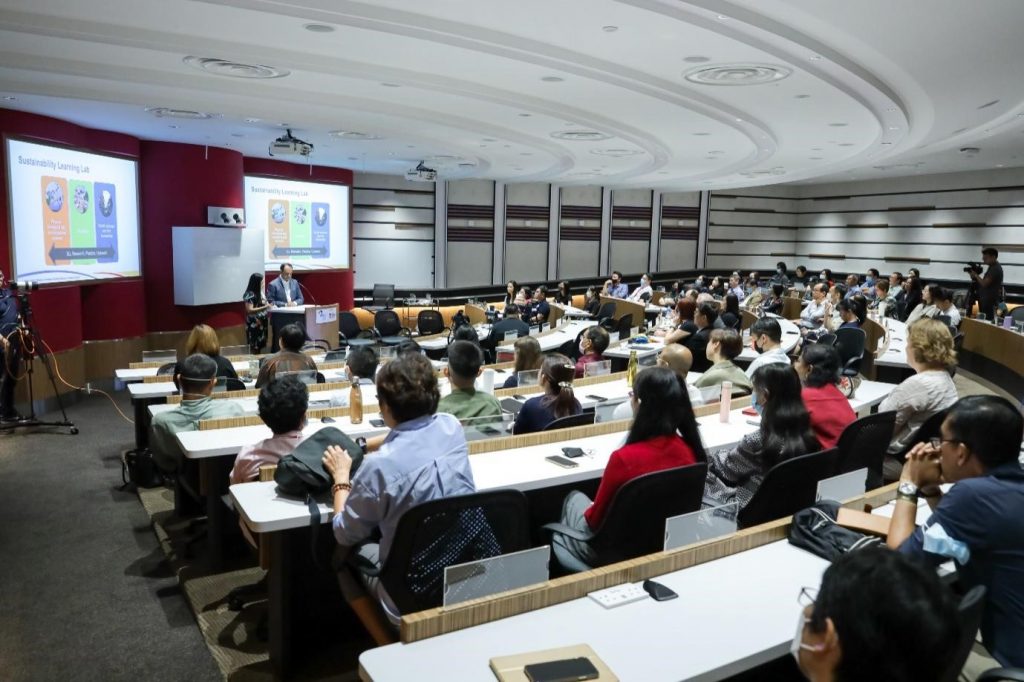
Fig. 3A and 3B: (From left) Co-chairs of SLL Dr. Tricia Seow and Associate Professor Diganta Das giving a welcome address to a full lecture theatre.
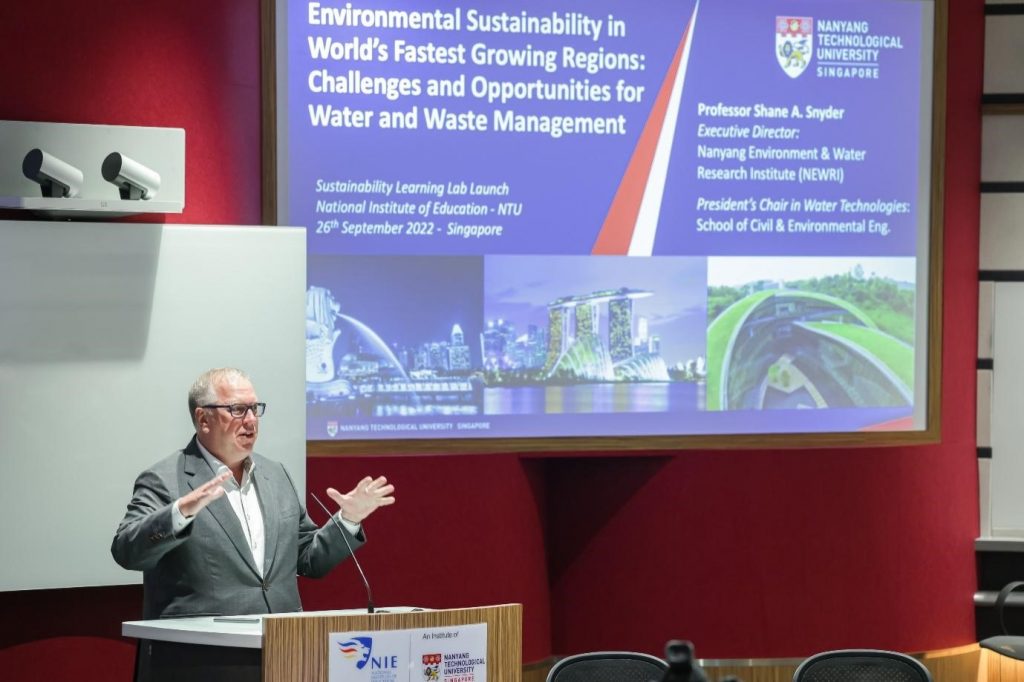
Fig 4. Keynote speaker Professor Shane Snyder, Executive Director of NEWRI giving a presentation on technological innovations in environmental engineering.
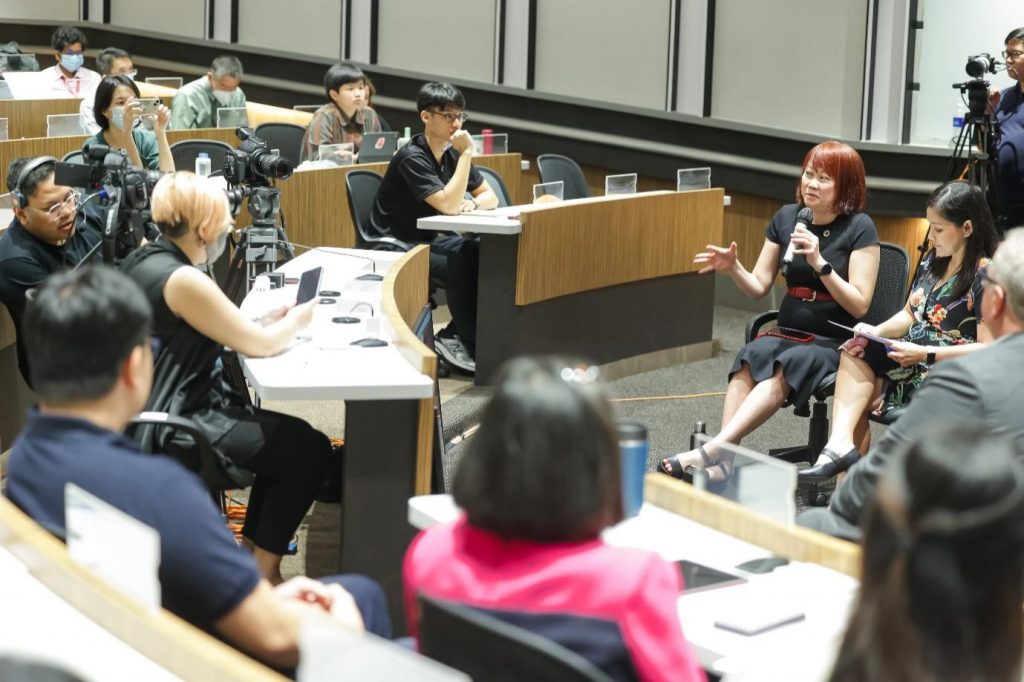
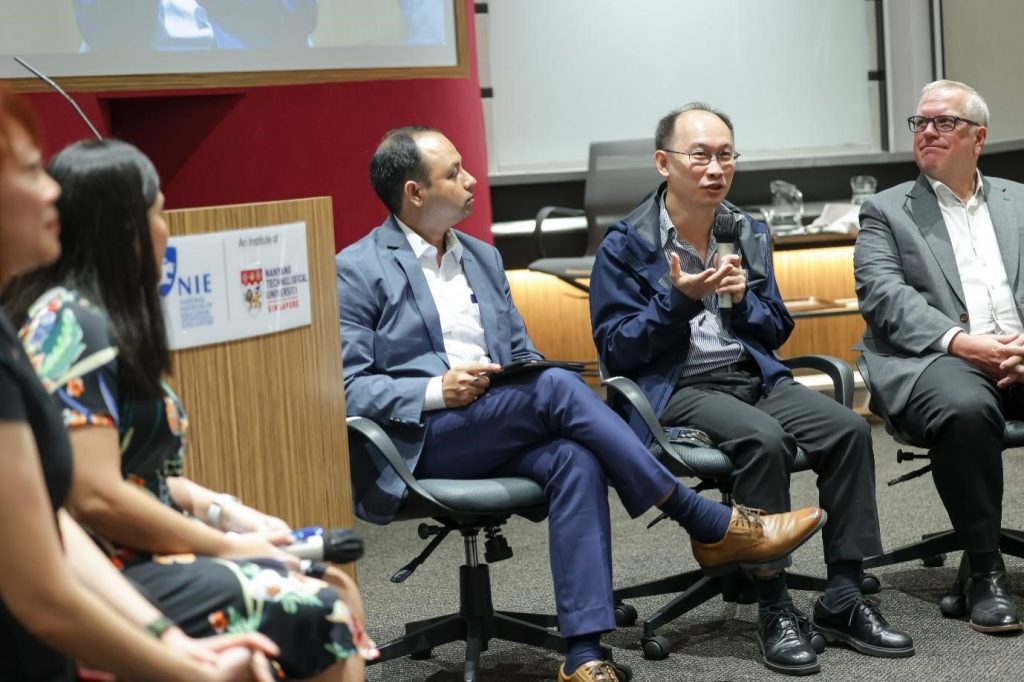
Fig 5A and 5B: Panel discussion on ‘learning about sustainability: What a society must do’, with panellists (from left) Ms. Foo Peng Er, Mr. Ho Shen Yong, Dr. Tricia Seow, Professor Shane Synder, with Associate Professor Diganta Das as the moderator.
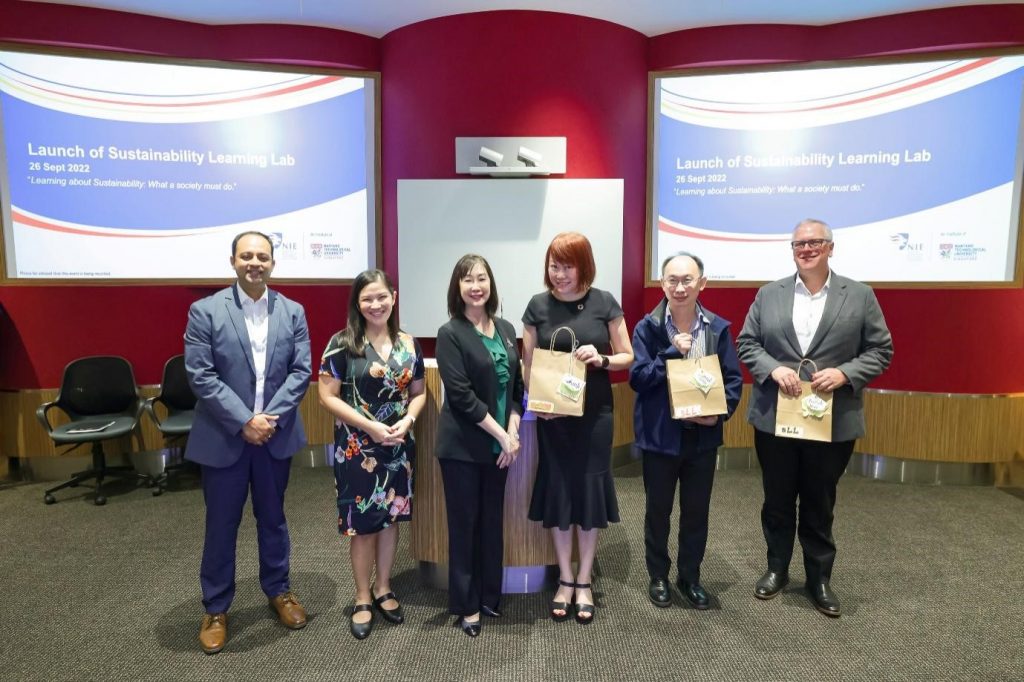
Fig 6. NIE Director Professor Christine Goh presenting our panel discussants with tokens of appreciation that were sustainably sourced and packed using upcycled materials.
Tour of SLL’s facilities
The second half of the launch in the afternoon involved an open house of the refurbished SLL room and the Geo-Informatics Lab (Fig 7A and 7B). The SLL room housed several ‘pop-up’ stations showcasing a handful of ongoing sustainability-related projects with their respective Principle Investigators (who are also SLL members) striking up meaningful conversations with guests. For instance, Dr. Kenneth Lim from Office of Education Research and his team shared about how climate change can have an impact on one’s cognitive capacities (Fig 7A) while Dr. Johanna Soo from Natural Sciences and Science Education expounded on food waste within the private (domestic) and public (institutional) spheres. Assistant Professor J.J. Zhang and his collaborators Mr. Jonathan Foo and Mr. Chew Keng Hao from Vue Networks offered a glimpse of how Virtual Reality Tourism can improve the mental well-being of older adults with mobility constraints. Further, the co-creators of the Getting to Zero card game and Singapore Untamed board game demonstrated how these could be played with game-based learning in mind (Fig 10 and Fig 11).
Meanwhile, Professor Edward Park handled the flume machine in the Geo-Informatics Lab (Fig 12A and 12B). The guests were also invited to a field-based tour of NIE’s rain garden, which is akin to a cleansing biotope. The garden is fitted with sensors and other equipment that Assistant Professor Wang Jingyu has been maintaining (Fig 13A and 13B).
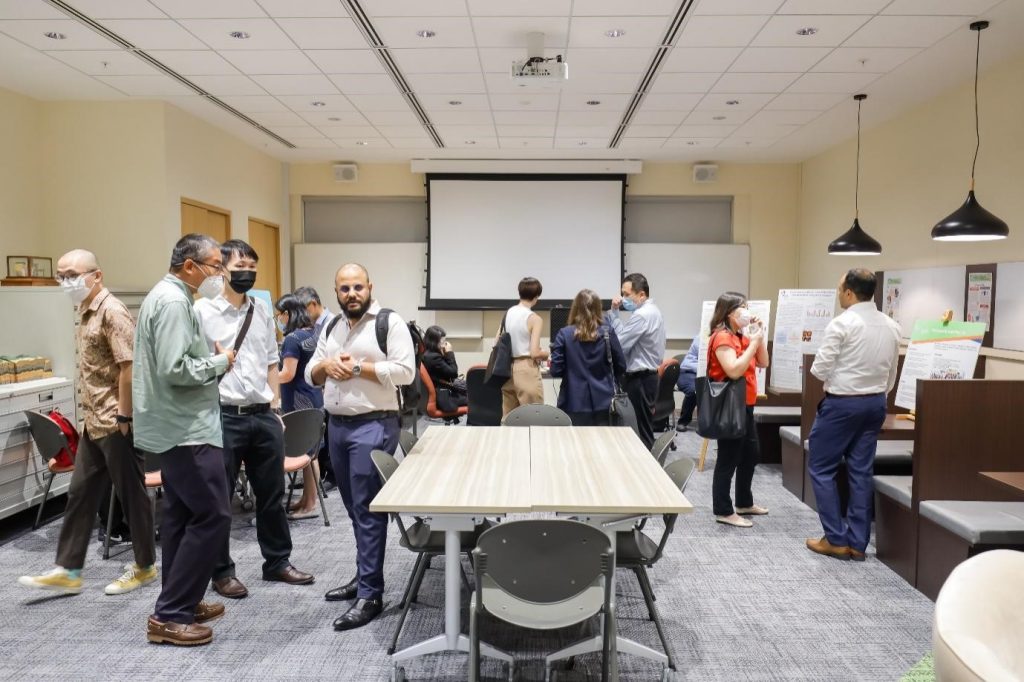
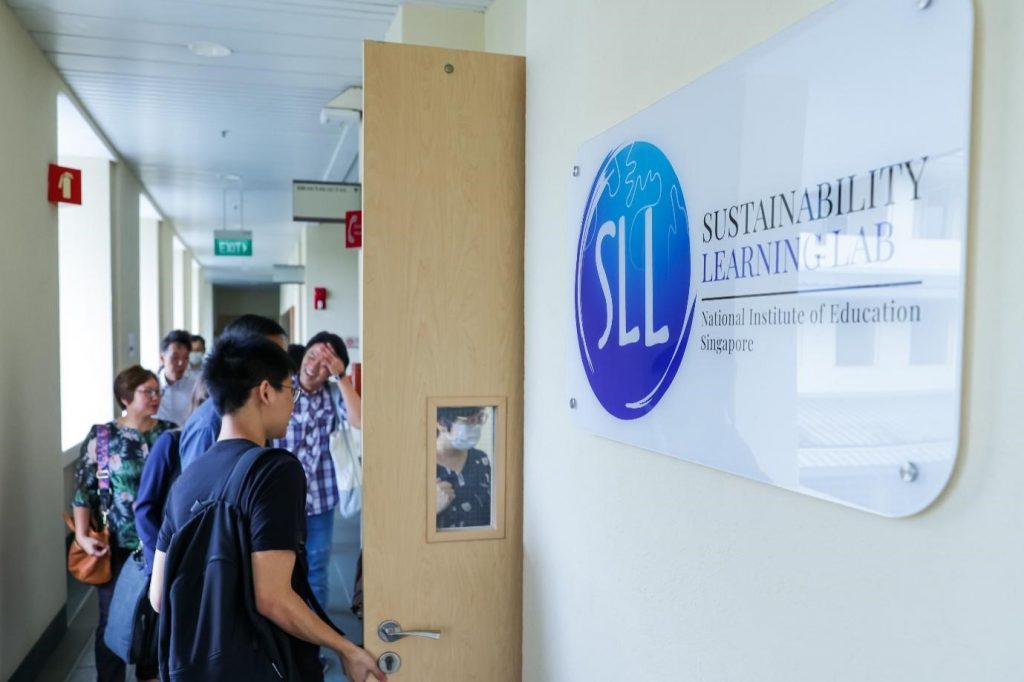
Fig 7A and 7B: Visitors at the newly renovated SLL room with ‘pop up’ stations showcasing SLL’s projects. Fig 7A: (Left) Dr. Kenneth Lim conversing with a visitor on how climate change can affect one’s cognitive functioning.
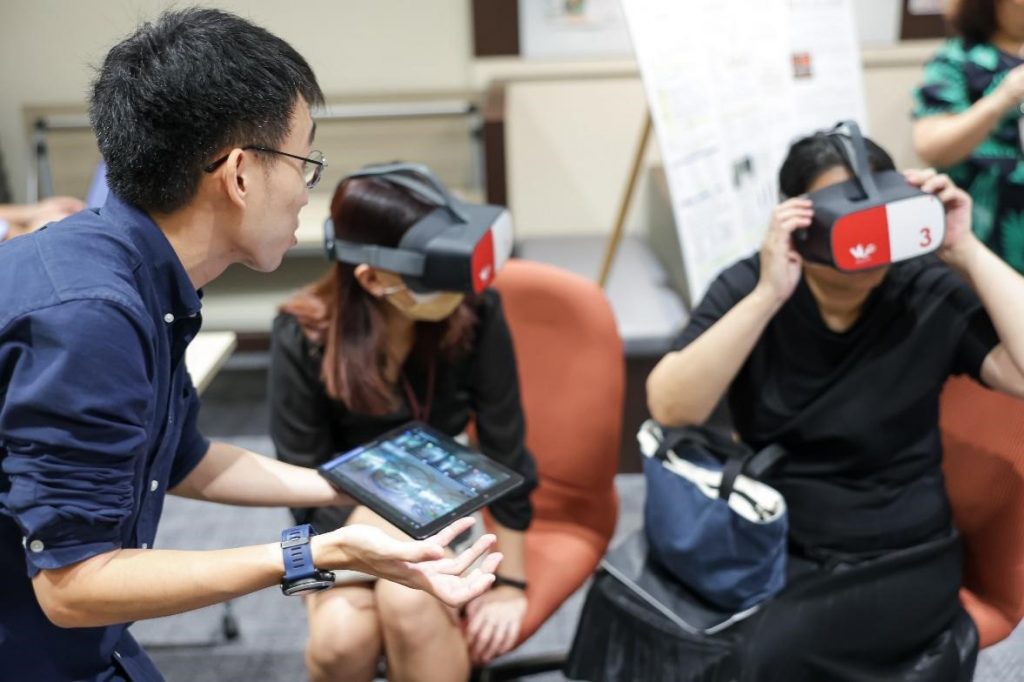
Fig 8: (Left) Chew Keng Hao who is part of Assistant Professor J.J Zhang’s research team capitalising on Virtual Reality (VR) headsets to offer the participants a ‘tourist experience’.
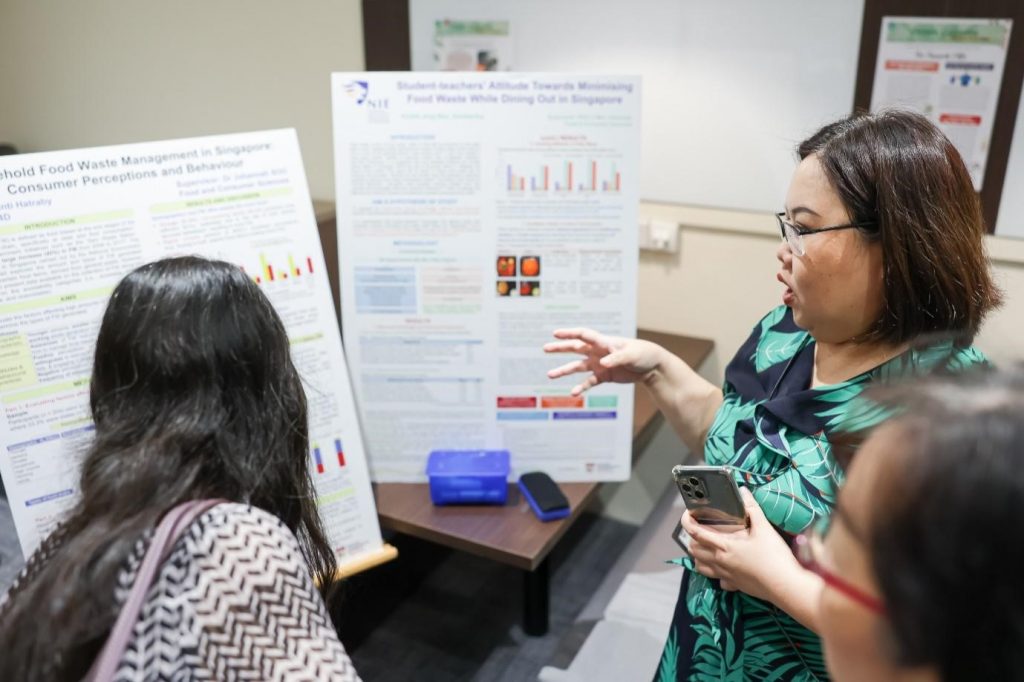
Fig 9: Dr. Johanna Soo from Natural Sciences and Science Education illustrating her students’ project findings on food waste in the household and on campus, at the canteen.
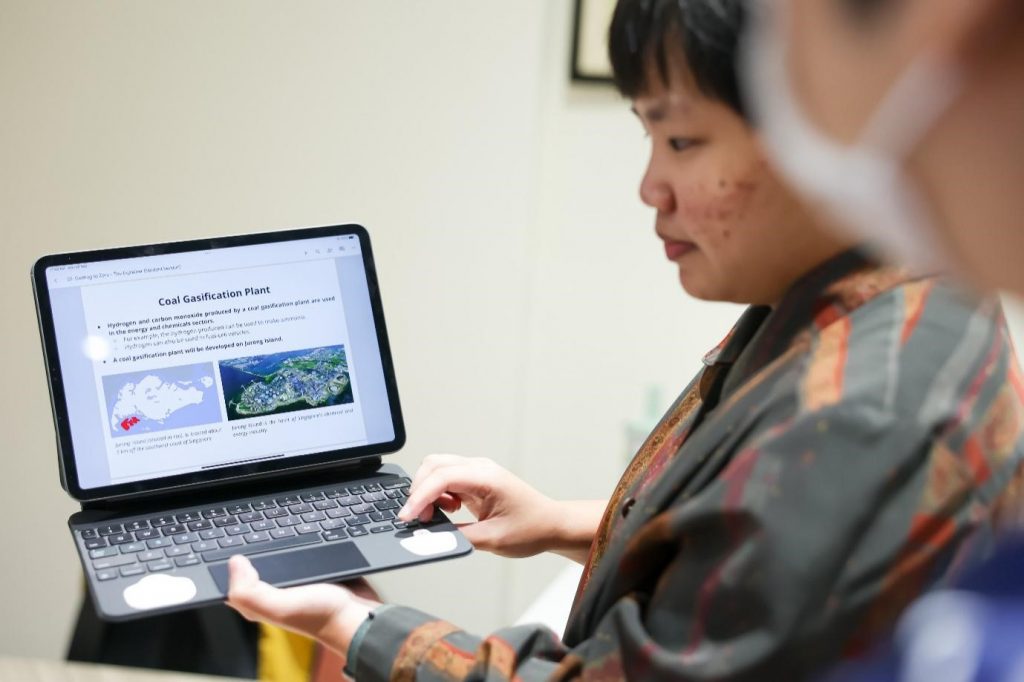
Fig 10: Ng Wen Xin, co-creator of the Getting to Zero card game based on Singapore’s energy policies and options explaining the game’s pedagogical affordances.
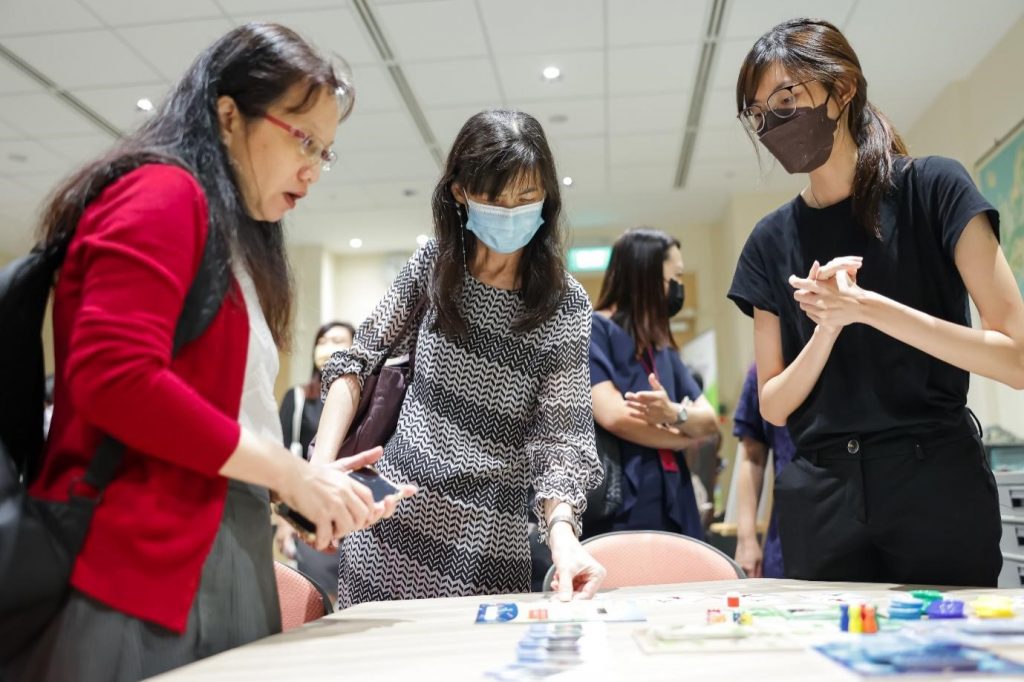
Fig 11: Pang Tien Feng, co-creator of the Singapore Untamed board game premised on the country’s ecological habitats and biodiversity demonstrating how the game can be played.
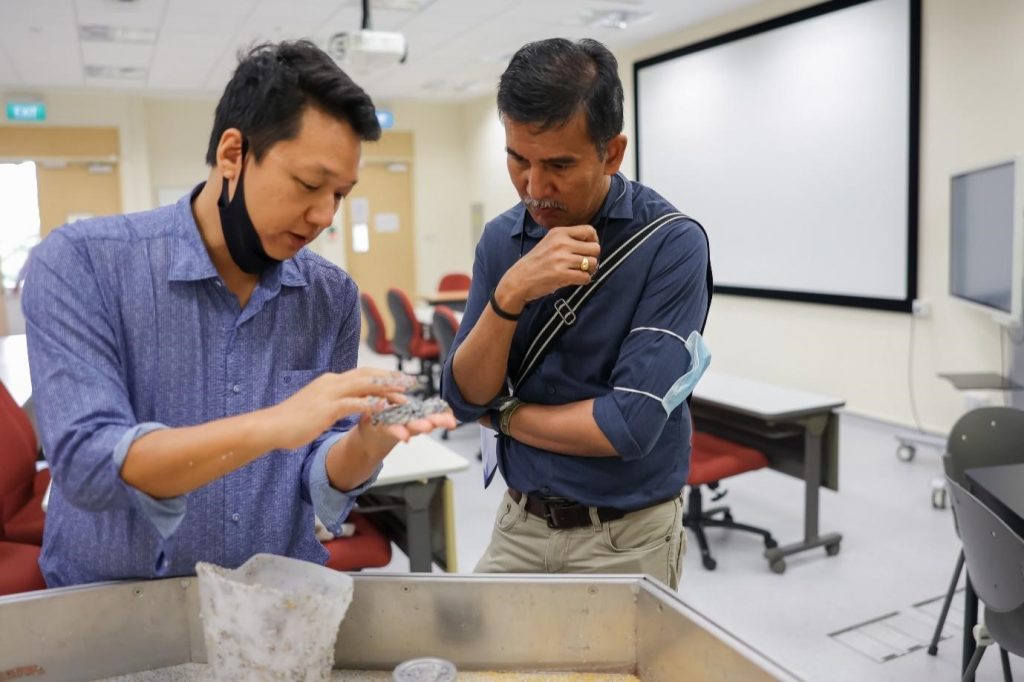
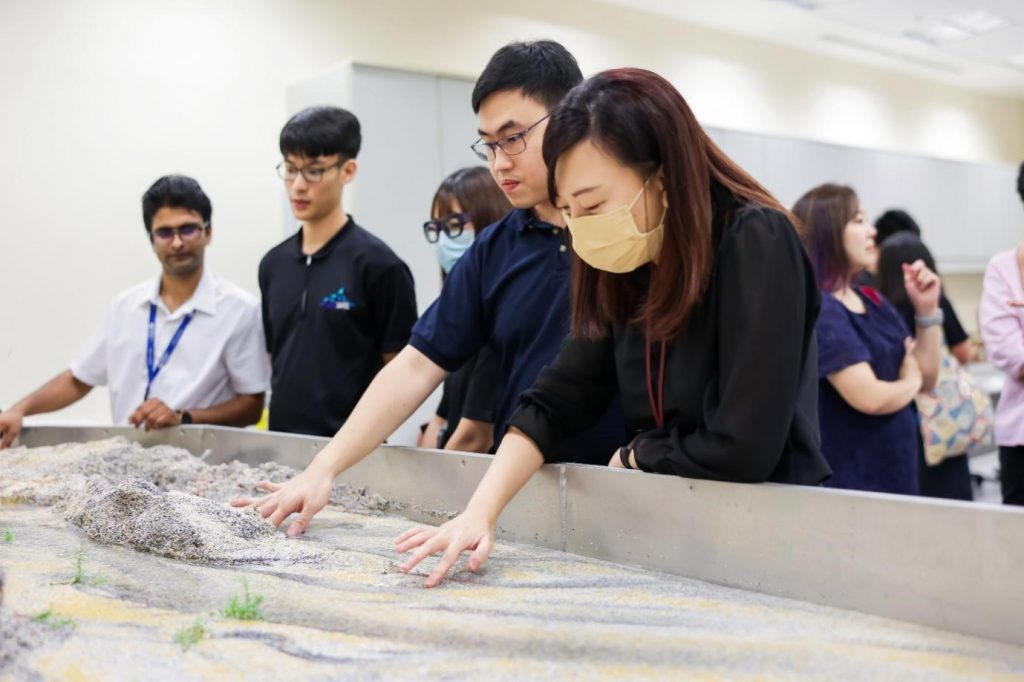
Fig 12A and 12B: Assistant Professor Edward Park showing student helpers Donovan and Ryan as well as Teaching Fellow Ms. Ee-laine Oh how fluvial erosional processes can be modelled vis-a-vis the flume machine in the Geo-Informatics Lab.
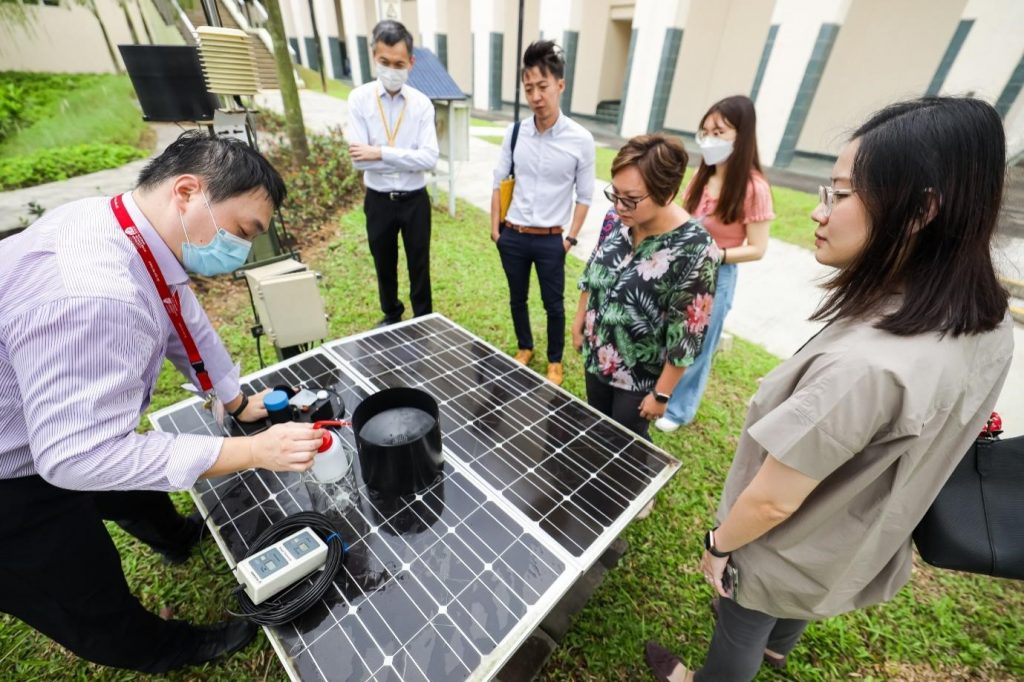
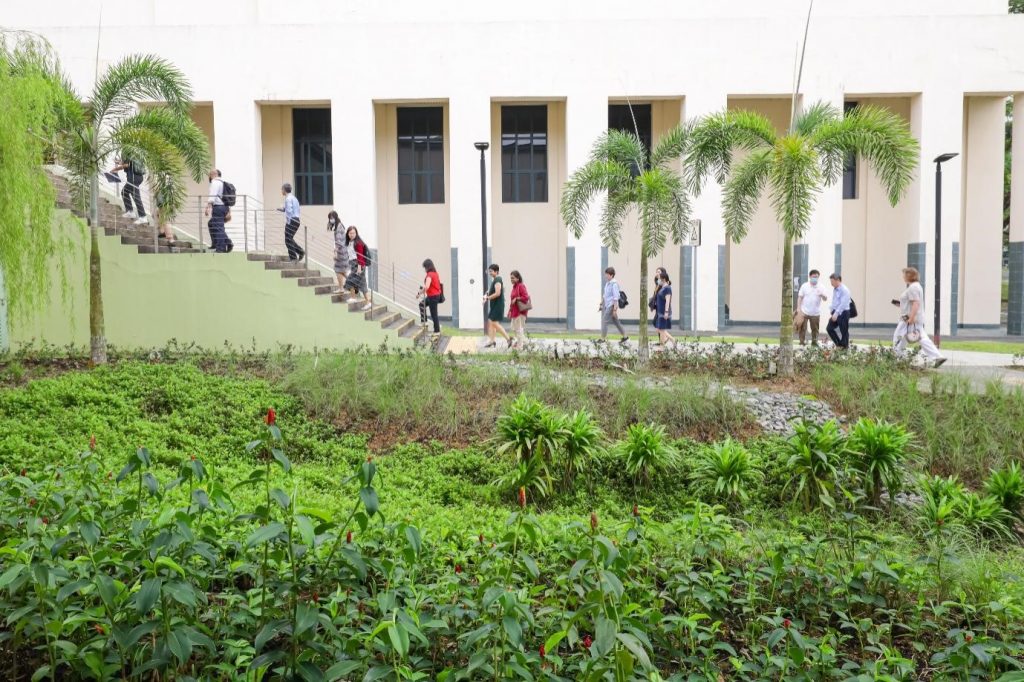
Fig 13A and 13B. Fig 13A: Assistant Professor Wang Jingyu detailing how weather instruments in NIE’s Rain Garden function. Fig 13B: Guests walking past NIE’s Rain Garden.
In conjunction with SLL’s launch, a fresh website (https://sll.hsse.nie.edu.sg) has been developed to document related news, events and projects while serving as a resource bank for educators. The SLL team has also published a special issue of HSSE Online on sustainability education (https://bit.ly/hssev11i2) to mark its new beginnings. In sum, beyond being a leading centre of excellence in sustainability (education) research, SLL is well positioned to be at the heart of transformative change for a greener and better world.
